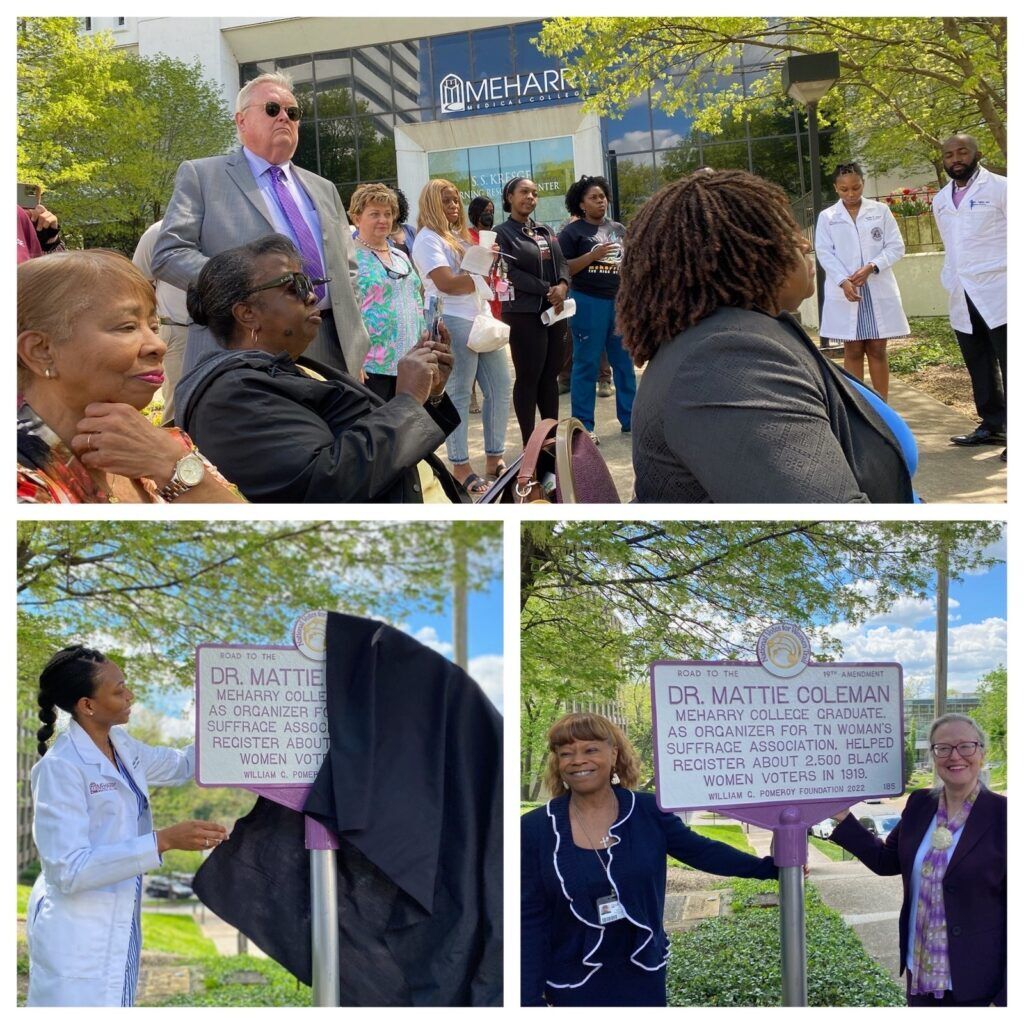Tuesday, Aug. 26, 2025, marks 104 years since the 19th Amendment was certified, recognizing women’s constitutional right to vote. But anniversaries like Women’s Equality Day are not just about looking back. They remind us of unfinished business.
After helping securing women’s right to vote, leading suffragist Alice Paul in 1923 drafted the original version of the Equal Rights Amendment. Paul and other women’s rights activists believed the right to vote was only a first step and that full legal equality required constitutional protection through an amendment guaranteeing equal rights for all sexes.
Last week in Knoxville, Tenn., activists unveiled the Tennessee Woman Suffrage Heritage Trail Museum—just blocks from where, in 1920, Tennessee cast the deciding vote to ratify the 19th Amendment. That museum honors the suffragists who fought for decades, often facing ridicule, arrest and violence.

A century later, in 2020, Virginia became the 38th state to ratify the ERA (the would-be 28th Amendment), crossing the threshold for constitutional equality. Many hoped it would finally cement gender equality in law. Five years later, the ERA still has not been recognized by Congress—and the broader political climate shows why it’s needed. Abortion rights have been rolled back in many states, health clinics defunded, miscarriage care criminalized, and voting access restricted.
Some leaders are going further: Earlier this month, Trump’s defense secretary, Pete Hegseth, reposted a video of evangelical pastors calling for repeal of the 19th Amendment. The message was clear: Undermining women’s voting power remains a goal for the far right.
The Power of Women’s Votes
Women’s votes have consistently shaped U.S. elections:
- Since 1980, women have turned out at higher rates than men.
- In 2020, a record-breaking gender gap allowed Joe Biden to triumph over Donald Trump.
- In 2022, young women—many voting for the first time—swung key races in states like Arizona, Nevada, Georgia and Pennsylvania.
- In 2023 and 2024, women helped beat back antiabortion ballot measures and extremist candidates.
This fall, elections in Virginia, Pennsylvania and New Jersey will provide an early indication of how women—especially younger voters—might influence the 2026 midterms.
The Challenges Ahead
The challenges are real. The proposed SAVE Act threatens to make voting harder for students, married women, low-income voters and communities of color. Dark money is flooding state races aimed at rolling back abortion access, LGBTQ+ protections and civil rights. And without congressional recognition of the ERA, gender equality remains absent from the Constitution.

But wins are possible. As Ms. readers may know:
Tennessee was the 36th state to ratify the 19th Amendment on August 18, 1920, pushing the amendment past the two-thirds majority of states that women needed. But the vote was a close one: It only passed when Harry Burn, a 24-year-old member of the House of Representatives, decided at the last minute to reverse his longstanding opposition to women’s suffrage.
Burn was the youngest member of the state legislature, and wore a red rose boutonniere that day to signify that he would vote against the potential new law. (Those in favor of ratification wore yellow roses, while those against wore red.) Going by the roses’ colors, many anticipated that the vote would end in a gridlock.
That was, until Burn received a note from his mother, Phoebe Ensminger Burn. In the note, she wrote, “Hurrah, and vote for suffrage! Don’t keep them in doubt.” In a nod to suffragist leader Carrie Chapman Catt, she then added, “Be a good boy and help Mrs. Catt put the ‘rat’ in ratification.”
Still clutching his mother’s note, Burn voted “aye.” And only a few days later, on August 26, the 19th Amendment went into effect as law, ending suffragists’ half-century long campaign.
Burn later defended his change of heart by saying, “A mother’s advice is always safest for her boy to follow, and my mother wanted me to vote for ratification.”
This Women’s Equality Day, we invite you to remember Tennessee’s suffragists—and finish what they started. Sign the national petition at Sign4ERA.org urging Congress to do what the Constitution, and history, demand: Affirm the Equal Rights Amendment as the 28th Amendment.
Great Job Ms. Editors & the Team @ Ms. Magazine Source link for sharing this story.



